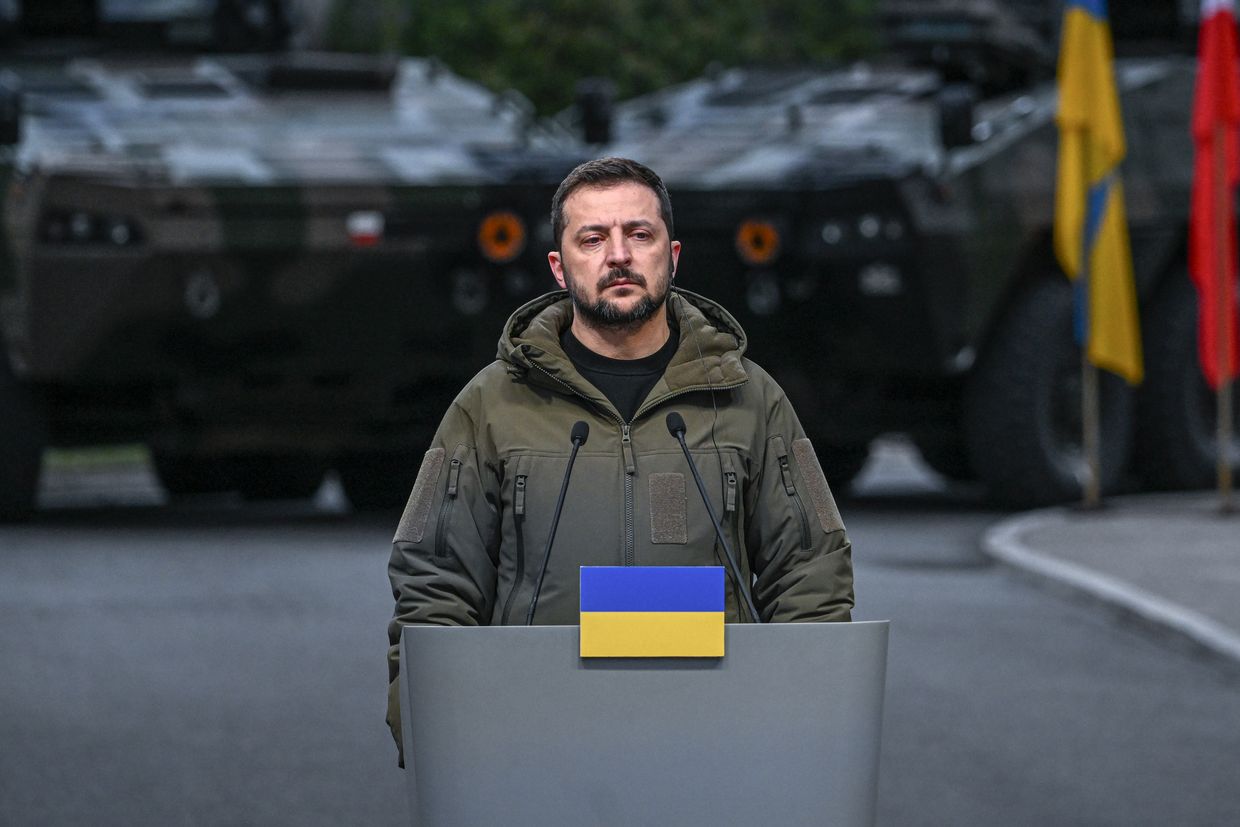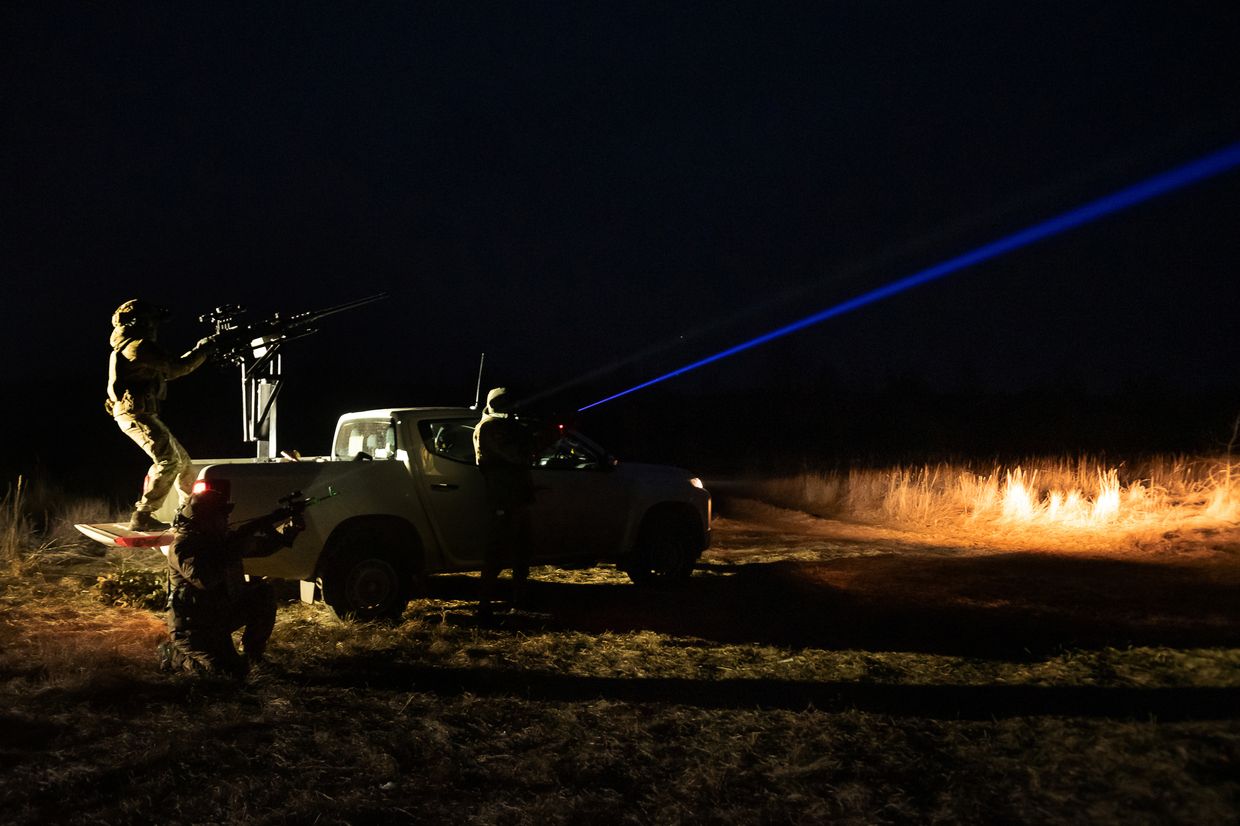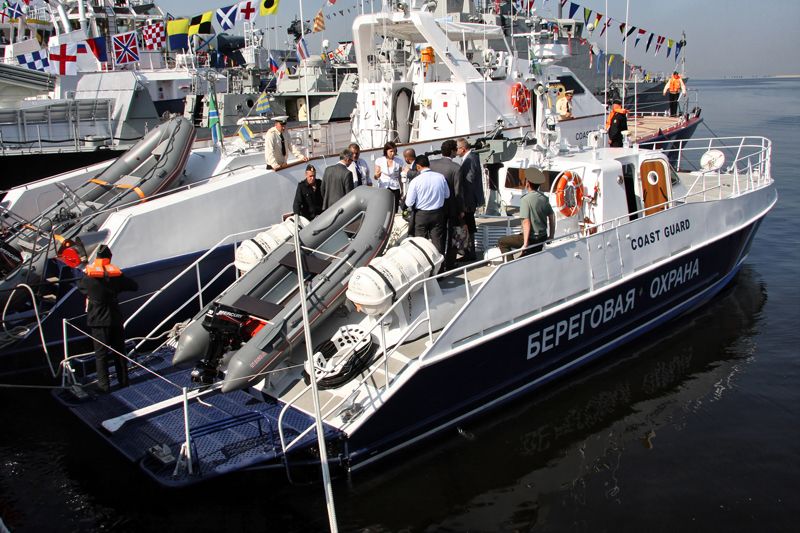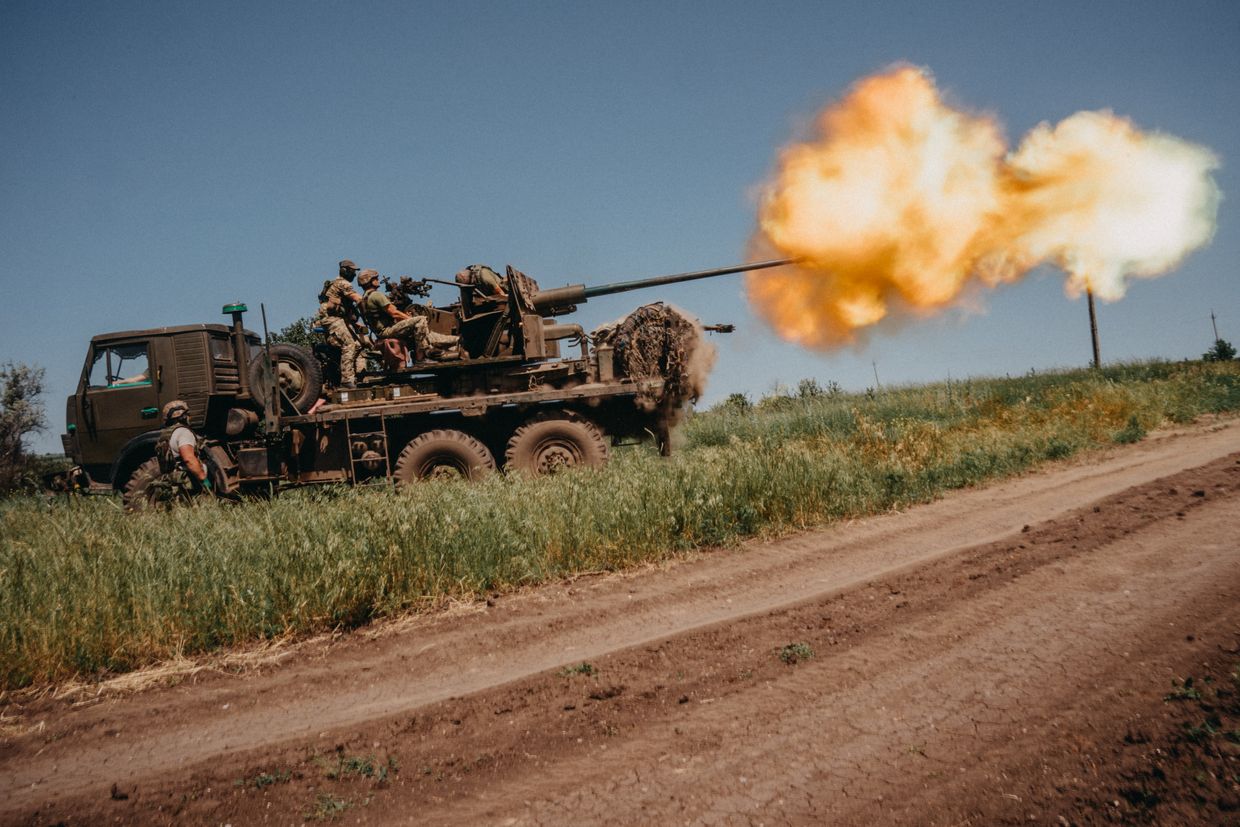Ukraine war latest: 2 Ukrainian colonels detained in Russia's plot to assassinate Zelensky, SBU says
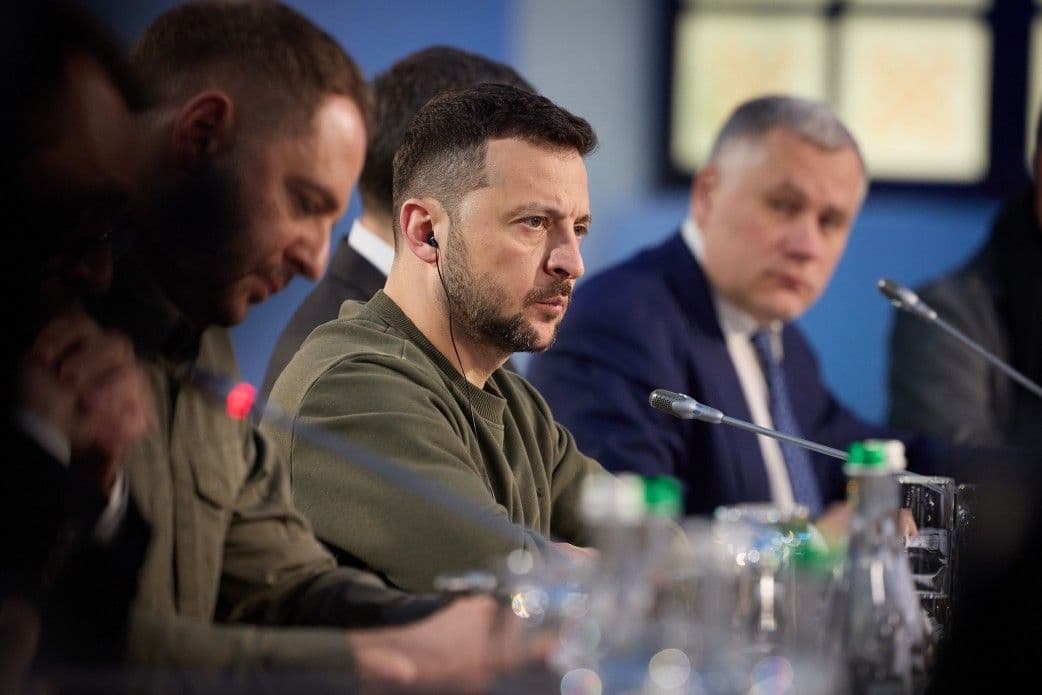
Key developments on May 7:
- SBU says it foiled Russia's plot to assassinate Zelensky, 2 Ukrainian colonels detained
- Government backs proposal on unmanned systems armed forces branch
- Military intelligence: Ukraine constantly inventing new ways to sink Russian ships
- Russian strikes on Nikopol in Dnipropetrovsk Oblast injure at least six
- Zelensky: Ukraine, Spain conclude talks on security agreement text
The Security Service of Ukraine claimed on May 7 that it had uncovered a network of Russia's Federal Security Service (FSB) agents who were preparing the assassination of President Volodymyr Zelensky and other high-ranking officials in Ukraine.
Two colonels of Ukraine's State Security Administration (UDO) accused of leaking classified information to Russia were reportedly detained.
In late November, Zelensky said in an interview with The Sun that he had survived at least five assassination attempts since the start of Russia's full-scale war.
The FSB network aimed to find perpetrators among the military close to Zelensky's security, "who could take the head of state hostage and then kill him," according to the SBU.
The planned attack was supervised by Maxim Mishustin, Dmitry Perlin, and Alexey Kornev, wemployees of the FSB's fifth service, according to the SBU.
"The terrorist attack, which was supposed to be a gift to (Russian President Vladimir) Putin for his inauguration, was actually a failure of the Russian Secret Service," SBU chief Vasyl Maliuk said.
Other Russia's targets reportedly included Maliuk and Ukraine's military intelligence (HUR) head Kyrylo Budanov.
Budanov's assassination was allegedly planned to be carried out before Orthodox Easter, celebrated on May 5. A Russian agent was supposed to track Budanov's movements and pass the information to Russia, according to the SBU. One of the UDO colonels allegedly supplied the FSB agent with FPV (first-person-view) drones, warheads for portable launchers, and anti-personnel mines.
The plan reportedly was to hit a house where the HUR chief was supposed to be with a missile, and then attack the people remaining at the site with drones. Then there was supposed to be another missile strike to eliminate the evidence of a drone attack, the SBU said.
In early April, the SBU reported that a joint operation by Ukrainian and Polish law enforcement agencies led to the detention of a Polish citizen who allegedly offered to Russia to assassinate Zelensky.
Government backs proposal on unmanned systems armed forces branch
The government supported on May 7 a draft decree by President Volodymyr Zelensky on the creation of a separate armed forces branch dedicated to unmanned systems, Defense Minister Rustem Umerov said.
Zelensky presented the plan for the new branch in early February as part of Kyiv's efforts to ramp up production of this crucial military capability.
"This is a strategic step for our country in the face of the growing threat from Russia," Umerov said.
As the next step, the Defense Ministry will "prepare and introduce the relevant draft law to the government meeting."
The Unmanned Systems Forces will reportedly focus specifically on improving Ukraine's work with drones, creating special drone-specific units, ramping up training, systemizing their use, increasing production, and pushing innovation.
Drones have become a crucial factor on Ukrainian battlefields for both belligerents, serving multiple purposes, including reconnaissance, airstrikes, naval strikes, and guiding artillery.
Strategic Industries Deputy Minister Hanna Hvozdiar said in March that Ukraine has the capacity to produce 150,000 drones every month and may be able to produce 2 million drones by the end of the year.
Military intelligence: Ukraine constantly inventing new ways to sink Russian ships
Ukraine is constantly inventing new ways to destroy Russian ships in the seas around occupied Crimea, military intelligence (HUR) spokesperson Andrii Yusov said on May 7.
Speaking with Radio Free Europe/Radio Liberty (RFE/RL), Yusov said operators of the agency's Magura V5 multi-purpose sea drone vary their attacks and "do not repeat themselves every time."
His comments come a day after the military intelligence agency said it had destroyed a Russian Mangust-class patrol boat off the coast of occupied Crimea, the latest of several vessels destroyed by the Magura sea drone.
Yusov said Russia has been taking steps to counter the attacks, including by trying to hide ships and build protective barriers, but said the agency was "finding new ways to show that HUR and Magura work extremely efficiently."
The spokesperson did not elaborate on the new methods, but on the same day that the Mangust-class patrol boat was sunk, Russia's Defense Ministry published a video of what appeared to be a Magura equipped with an anti-aircraft missile.
Ukraine previously destroyed several Russian ships with a Magura V5 sea drone, including a landing ship Caesar Kunikov, a Sergei Kotov patrol ship, high-speed Serna and Akula landing crafts, and a Tarantul-class Ivanovets missile corvette.
Ukrainian forces also partially damaged the Russian military ship Ivan Khurs using a Magura V5 drone.
On April 21, Ukraine's Navy struck the Kommuna ship in occupied Sevastopol. It was launched in 1915 and is the oldest ship still in service in the Russian Navy.
Sevastopol is home to Russia's Black Sea Fleet and is frequently targeted by Ukrainian missile and sea drone strikes.
Russian strikes on Nikopol in Dnipropetrovsk Oblast injure at least 6
At least six people, including a six-year-old girl and a 91-year-old woman, have been injured during an intense day of Russian strikes in Nikopol, in the south-east of Dnipropetrovsk Oblast, authorities reported on May 7.
In a post on Telegram, Governor Serhii Lysak said 14 kamikaze drones and artillery struck the city and surrounding communities.
Initially, he reported four people had been injured – two women aged 91 and 50, and two men aged 37 and 40. One of the men was in a serious condition.
Ten houses, three garages, and several farm buildings were damaged.
In a later post, Lysak said the number of injured had risen to six, including the six-year-old girl.
Nikopol, situated on the banks of the mostly dried-up Kakhovka Reservoir, just across from Russian-occupied Enerhodar and the Zaporizhzhia Nuclear Power Plant, is a regular target of Russian attacks.
Zelensky: Ukraine, Spain conclude talks on security agreement text
Ukraine and Spain finalized negotiations on the text of a bilateral security agreement, President Volodymyr Zelensky said on May 7 after a call with Spanish Prime Minister Pedro Sanchez.
Over 30 countries have joined the Group of Seven (G7) Joint Declaration of Support for Ukraine so far. The U.K., Germany, France, Denmark, Italy, Canada, the Netherlands, Finland, and Latvia have already signed bilateral agreements with Kyiv.
Ukraine is preparing bilateral security agreements with seven more countries, including Spain.
G7 members presented their plan for long-term security commitments for Ukraine at the NATO summit in Vilnius in early July last year.
Under this plan, individual countries would provide bilateral support to help Kyiv repel the ongoing Russian invasion and deter any future aggression.
The security guarantees would entail explicit and long-lasting obligations and bolster Ukraine's ability to resist Russian aggression. The guarantees would also cover sanctions, financial aid, and post-war reconstruction.
Sanchez also confirmed his participation in Ukraine's global peace summit to be held in Switzerland on June 15-16.
"I am grateful to Prime Minister Sanchez for his active support of the peace formula and its promotion among countries in Latin America and Africa," the president said.
Zelensky and Sanchez further discussed the continuation of military aid to Kyiv.
Ukraine has received Patriot anti-aircraft missiles from Madrid, Spanish Defense Minister Margarita Robles announced on May 6. The country's move is among the latest from Western nations responding to calls from Kyiv for more air defenses in the face of escalating Russian missile and drone attacks on cities across Ukraine.



